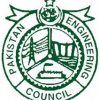VISION
The department aims to lead in engineering education, creation and producing finest graduates of Mechanical Engineering by providing the unique environment that fosters educational research, technological, economics, cultural and social enrichment worldwide.
MISSION
The mission of department is to provide an environment to address research and solve real world problems through curriculum designed for good engineering ethics for the graduates to behave as good human beings for societal need.
Program Vision
The vision of Mechanical Engineering Department is to lead in education, creation and producing finest graduates of Engineering for academia and industry. This may include the followings:
- Investing the intellectual and human capital of each individual student focusing on both breadth and depth of knowledge.
- Multidisciplinary and integrated education,
- Meeting and exceeding current and future challenges in Mechanical Engineering.
- To provide the unique environment that fosters educational research, technological, economics, cultural and social enrichment worldwide.
- To make its graduates with good engineering ethics and also a good human being.
- Being the pioneer who understand educational challenges and market demands and create top quality successful and sustainable programs and curricula for our graduates.
- To provide opportunities to underprivileged to shape their intellectual and human potential.
Program Mission
The mission of Mechanical Engineering Department is
- To realize the facts and recognize the demand of the global economy, the new dynamics of the world market, cultural differences and diversity.
- Provide an environment in which students are given the essential resources to address research and solve real world problems, participating in interdisciplinary and multidisciplinary research and its applications.
- Provide its graduates with the knowledge and skills needed for high quality engineering works as well as advanced Engineering research.
- Provide active learning, critical thinking and Engineering judgement coupled with business entrepreneurial skills.
- Equip its graduates with a broad intellectual spectrum in order to prepare them for drives competitive career paths. Our curriculum is designed for good Engineering ethics for the graduates to behave as good human beings for societal need. To enable the students to solve complex Engineering problems after graduation.
- Offer internship and continuing professional development programs that produce top notch graduates for the highest paid jobs.
- To provide the unique environment that fosters educational research, technological, economics, cultural and social enrichment worldwide.
Program Educational Objectives
Mechanical Engineering program’s graduates should have following skills after gaining five years of professional experience:
PEO_1: Take an interdisciplinary and integrative approach to address and solve Engineering issues in broad societal contexts.
PEO_2: Have the intellectual independence and leadership skills to critically evaluate information and to take creative course of action.
PEO_3: Practice the habits of life-long learning, necessary for a good human being and a sound Professional.
Program Learning Outcomes
Mechanical Engineering program has following PLOs which every student should successfully achieve to complete his/her graduation:
PLO_1 Engineering Knowledge: Apply knowledge of mathematics, science, engineering fundamentals and an engineering specialisation to the solution of complex engineering problems;
PLO_2 Problem Analysis: Identify, formulate, research literature and analyze complex engineering problems reaching substantiated conclusions using first principles of mathematics, natural sciences and engineering sciences.
PLO_3 Design/Development of Solutions: Design solutions for complex engineering problems and design systems, components or processes that meet specified needs with appropriate consideration for public health and safety, cultural, societal, and environmental considerations.
PLO_4 Investigation: Conduct investigation into complex problems using research based knowledge and research methods including design of experiments, analysis and interpretation of data, and synthesis of information to provide valid conclusions.
PLO_5 Modern Tool Usage: Create, select and apply appropriate techniques, resources, and modern engineering and IT tools, including prediction and modelling, to complex engineering activities, with an understanding of the limitations.
PLO_6 The Engineer and Society: Apply reasoning informed by contextual knowledge to assess societal, health, safety, legal and cultural issues and the consequent responsibilities relevant to professional engineering practice.
PLO_7 Environment and Sustainability: Understand the impact of professional engineering solutions in societal and environmental contexts and demonstrate knowledge of and need for sustainable development.
PLO_8 Ethics: Apply ethical principles and commit to professional ethics and responsibilities and norms of engineering practice.
PLO_9 Individual and Team Work: Function effectively as an individual, and as a member or leader in diverse teams and in multi-disciplinary settings.
PLO_10 Communication: Communicate effectively on complex engineering activities with the engineering community and with society at large, such as being able to comprehend and write effective reports and design documentation, make effective presentations, and give and receive clear instructions.
PLO_11 Project Management & Finance: Demonstrate knowledge and understanding of engineering and management principles and apply these to one’s own work, as a member and leader in a team, to manage projects and in multidisciplinary environments.
PLO_12 Lifelong Learning: Recognize the need for, and have the preparation and ability to engage in independent and life-long learning in the broadest context of technological change.
News Alerts !!!

Find Us on FaceBook



